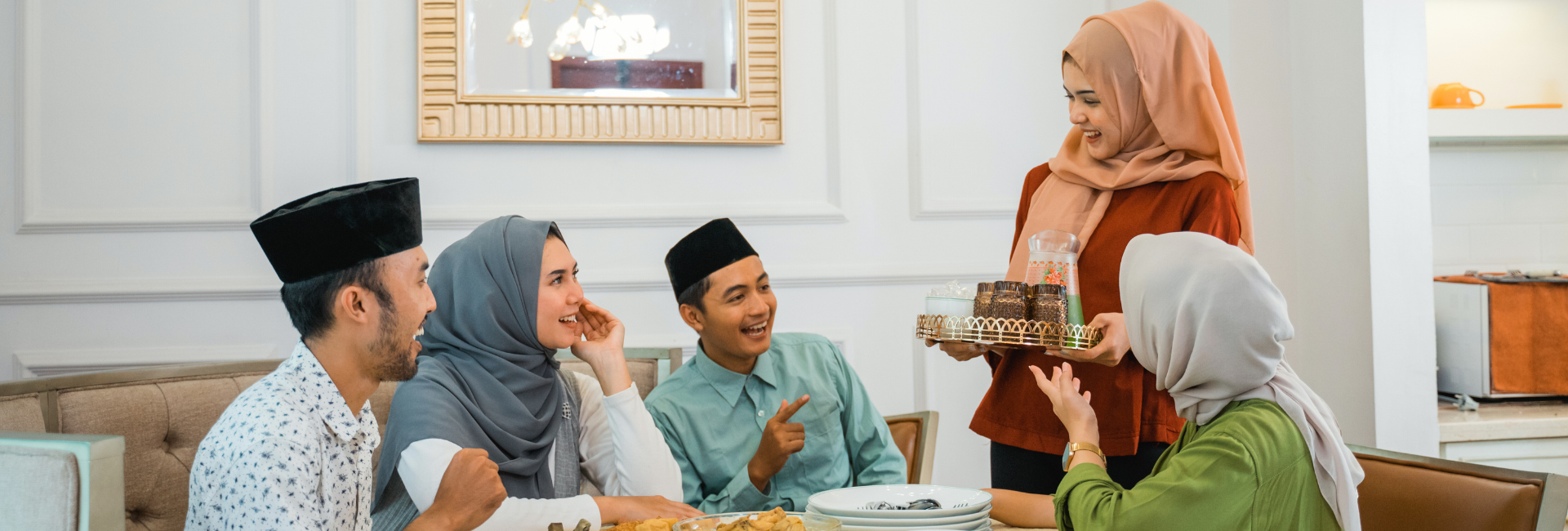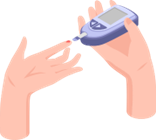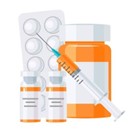
Fasting during Ramadan* is an important part of the Muslim faith for all healthy Muslims. However, fasting exemptions are made for those who are ill or have serious medical conditions, including diabetes.
If you have diabetes and choose to fast, it is essential to consult your doctor or healthcare team at least 6 to 8 weeks before Ramadan. They can guide you on:
- How to fast safely
- Whether adjustments to your diabetes medications are necessary
*Ramadan – the 9th month in the Islamic calendar
Preparing for fasting during Ramadan
Fasting (from dawn to sunset) during Ramadan is one of the Five Pillars of Islam. Ensuring optimal care and safety for persons with diabetes who fast during this period is crucial.
If you plan to fast, we strongly recommend:
- Consulting your healthcare team for a pre-Ramadan medical assessment
- Participating in Ramadan-focused diabetes education
- Discuss modifications to your diabetes treatment during Ramadan with your healthcare team
- Plan a trial run of fasting (i.e. Puasa Sunat) before Ramadan with your healthcare team
Do not self-adjust or stop your diabetes medications on your own.
Please speak to your doctor or healthcare team about Ramadan education resources.
Diabetes fasting risk assessment table
The risk assessment table below describes diabetes-related risks during fasting.
If you are in the
HIGH RISK or VERY HIGH RISK category, you are advised NOT TO FAST due to risk of
- Low blood glucose (Hypoglycaemia)
- High blood glucose (Hyperglycaemia)
- Diabetes Ketoacidosis (DKA)
- Dehydration
MODERATE/LOW RISK
VERY HIGH RISK | One or more of the following: - Severe hypoglycaemia (low blood sugar) episode 3 months before Ramadan
- Admission for severe hyperglycaemia (high blood sugar) episode 3 months before Ramadan
- Recurrent hypoglycaemia (low blood sugar)
- Poorly controlled Type 1 diabetes
- Acute illness
- Pregnant
- On dialysis or chronic kidney disease stages 4 and 5
- Old age with ill health
|
HIGH RISK | - Type 2 diabetes with poor glycaemic control
- Well-controlled Type 1 diabetes
- Well-controlled Type 2 diabetes on insulin or sulfonylureas (e.g. Glipizide, Gliclazide)
- Chronic kidney disease stage 3 People with diabetes performing intense physical labour
|
MODERATE/LOW RISK | Well-controlled Type 2 diabetes treated with one or more of the following: - Diet therapy
- Metformin
- Acarbose
- SGLT-2 inhibitors (e.g. Empagliflozin, Dapagliflozin)
- Basal insulin (e.g. Insulatard, Levemir, Lantus, Toujeo)
- DPP-4 inhibitor (e.g. Sitagliptin, Vildagliptin, Linagliptin)
|
How do I manage my diabetes during Ramadan?
 | BLOOD GLUCOSE MONITORING - Check blood sugar levels at least 2 days a week:
- Before Sahur
- 12 noon
- Before Iftar
- 3 hours after Iftar
- Break fast if blood sugar level < 4 or > 16 mmol/L
|
 | FLUIDS AND DIETARY ADVICE
- Do not skip Sahur
- Delay Sahur as late as possible
- Break your fast immediately after Azan
- Limit to 1-2 dates during Iftar
- Drink plenty of water (at least 8 glasses a day) from Iftar to Sahur (unless advised otherwise by your doctor)
|
 | EXERCISE - Avoid vigorous exercise while fasting due to the high risk of low blood sugar and dehydration
- Do regular light-to-moderate exercise
- Consider Tarawih prayers as part of your daily exercise routine
|
 | DIABETES MEDICATIONS (TABLETS AND INSULIN) - Do not stop diabetes medications on your own
- Discuss with your doctor or healthcare team about adjusting medications while fasting
- Injecting insulin before Iftar does not invalidate (break) your fast
|
 | WHEN TO END FAST EARLY - If blood sugar is less than 4 mmol/L or more than 16 mmol/L
- If you experience symptoms of hypoglycaemia, hyperglycaemia, dehydration, or feel unwell
|
Back to 'Dealing with Diabetes in Special Situations' >























